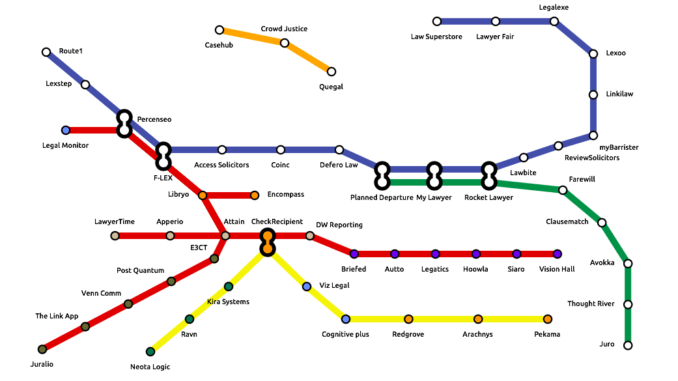
There has never been so much interest in legal technology as right now.
Conferences about technology and the law are now oversubscribed and people are being turned away because they are full. Legal Geek’s 2016 conference in London on 18th October, is a case in point, generating the kind of excitement one normally sees for the arrival of a stadium rock band.

We are even seeing dedicated legal AI sites such as ArtificialLawyer.com spring to life where before most legal tech news covered less than exciting subjects such as document management systems.
And traditionally conservative entities such as City law firms and the Law Society of England & Wales are also throwing themselves headfirst with enthusiasm into the new wave of legal tech and supporting the progress of start-ups. Clearly things have changed.
Meanwhile social media lights up everyday with commentary and news about the latest development in the legal tech field, especially areas such as AI. At the same time the Twitter hashtag for access to justice, #A2J, has emerged and groups of young legal hackers meet all over the world to develop tech-based solutions to provide law for all.
This is all great. But why is this happening now? Why didn’t this happen in, for example, 1996, or even 2006?
What is so special about now? Here’s a few thoughts:
- New technology itself is more accessible and has a broader knowledge base – one major change is the cheapness of processing power and data storage, this allows many small companies to develop applications that 10 years earlier may have only been available to large businesses with plenty of resources. Another reason is the increasing number of graduates with training in areas such as machine learning. While many such technophiles join the giants like IBM, Amazon, Google or Facebook, a sufficient number decide to join, or start, new, small start-ups in the legal field. Moreover, several such tech giants are now providing ‘off-the-peg’ AI software that is available to anyone who wants to use it, further allowing new ideas to develop and spring into life in the legal sector.
- The New Normal – after the financial crisis of 2008/9, many clients of law firms started pushing back on fees and also on how legal services were delivered. They wanted more efficiency, they wanted process work done more cheaply. It was a stepping up of the pace in the ‘industrialisation of legal production’ that had already started. This change has leant itself very well to new legal tech that meets this need, e.g. AI cognitive engines that can conduct due diligence reviews at low cost and at high speed. I.e. ‘commeth the hour, commeth the legal tech’.
- Clients are more tech savvy – many senior inhouse lawyers today are in their 30s and 40s. To a greater or lesser degree they have grown up with technology and the internet. They’re probably not coders, but they do feel comfortable with the concept of an AI system conducting due diligence work, or making use of an expert system, or bot, that provided legal information to them via a law firm website. In short, they see the potential for technology to not just be a support to their work, but for it to do legal work itself.
- Markets attract participants – there is a type of chicken and egg scenario in all business sectors where if there are very few players in a given vertical then few others will try to enter. But, once a vertical starts to see growing investment then an exponential wave of interest builds. This is where we are right now with legal tech. The market is packed full of start-ups at various stages of development and even many of the most well-known new legal tech companies are only two or three years’ old. Investors, incubators and accelerators are also arriving in growing numbers. And in turn more and more lawyers are leaving their jobs to launch legal tech start-ups, which further encourages more to do the same in search of innovation and creating solutions to legal problems.
And, of course there is one other reason: start-ups and advanced legal tech is simply exciting. Legal tech is now capable of making a real difference to both lawyers and clients, whether large companies or the general public seeking access to justice.
That excitement will only grow, leading to more people creating start-ups, many of which will be present at the Legal Geek event. It certainly looks like Legal Geek fever is with us for the long term and it’s only just begun.
This article was written by Richard Tromans, Editor, ArtificialLawyer.com
[Picture credit: start-up map by Legal Geek and Thomson Reuters.]